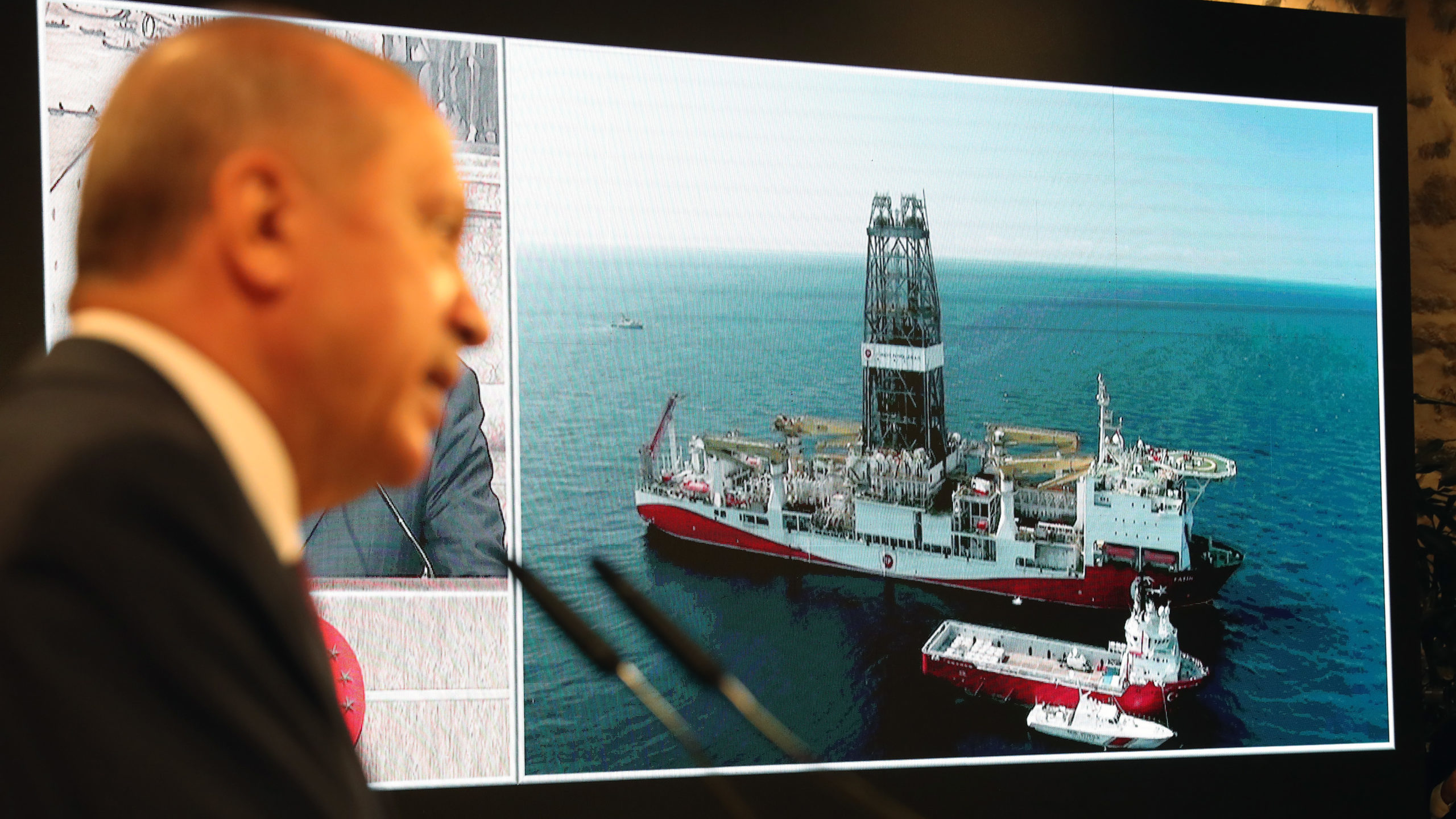Turkish Gas Discovery Could Fuel Further Regional Confrontations
If Ankara is less dependent on Iran and Russia for energy, it might draw closer to the US, analysts say
Turkey’s announcement that it has discovered a large gas reserve off its Black Sea coast could mean it will have more means to fund aggression against its rivals but the find could also bring it closer to the US, analysts told The Media Line.
Turkey will eventually become an energy exporter and could start using the gas by 2023, President Recep Tayyip Erdoğan said Friday in an address to announce the discovery. Some 320 billion cubic meters of natural gas worth $65 billion was found in drilling that started after July 20 about 100 nautical miles north of the Turkish coast in the western Black Sea, the government said.
“That promises conflict,” Atilla Yesilada, a Turkey-based economist, told The Media Line. On the other hand, Yesilada was skeptical about whether international energy companies would work with Turkey if it were acting against the wishes of other nations.
Turkey continues to explore for energy reserves in sections of the Mediterranean where other countries also have claims. Yesilada said that unless there were agreements with other countries in the region, Turkey would take a more confrontational stance in its search for energy.
“Turkey will continue to dictate what it considers [to be in] its national interest by gunboat diplomacy,” Yesilada said.
Analysts estimate it could take several years beyond 2023 for Turkey to profit from the Black Sea reserve and that it would first require major financial investments.
Meanwhile, Turkey is largely dependent on Iran and Russia for energy supplies.
“The Iranians really do fall under that frenemies category where they get along mostly because Turkey feels they don’t have better options,” said Ryan Bohl, a Middle East and North Africa analyst with Stratfor, whose web site says it helps companies anticipate and mitigate risk.
Bohl told The Media Line that if the reserves lead to more energy independence for Turkey, that can improve its relations with Washington.
Turkish state bank Halkbank is accused of skirting US sanctions against Iran and the case may lead to a large fine.
If Turkey becomes less reliant on Iran, then it would be easier for Washington to tighten sanctions on Tehran.
Former US National Security Adviser John Bolton said that President Donald Trump promised Erdoğan he would intervene in the Halkbank case.
However, Democratic presidential candidate Joe Biden has said he would take a tougher line on Turkey, with a major financial penalty looming.
Economic problems have weighed heavily on Erdoğan. His party lost control of Istanbul and Ankara during mayoral races last year, which was partly blamed on the country’s poor finances following US sanctions over a detained pastor.
The economy has once again taken a major hit amid the pandemic with rising unemployment and inflation.
The largely anticipated announcement on Friday already provided a boost, strengthening the country’s lira.
Bohl stated that Turkey now has an alternative to potentially meet its energy needs that is less confrontational than its approach in the Eastern Mediterranean.
Turkey has been competing for maritime rights and exploring for gas in the sea in competition with regional rivals, which include fellow NATO member Greece.
To strengthen its hand in the region, Ankara made a maritime agreement with Libya’s UN-recognized Government of National Accord, which had been fighting an insurgency led by Field Marshal Khalifa Haftar, who served as a general under Muammar Gaddafi.
The agreement claimed that Turkey and the GNA had rights over a section that crossed the Mediterranean Sea. Hours before Erdoğan’s announcement, the GNA declared a cease-fire.
However, financial benefit was not the only motivation for Ankara in the Eastern Mediterranean.
Bohl said he feels that the Black Sea discovery gave Turkey a less aggressive route to possibly meet some of its energy needs but thinks it is unlikely that Ankara would completely depart from a more confrontational approach in the Mediterranean.
“The moves in the East Med were not always energy driven. They had a political dimension to them; they had a nationalist dimension to them,” Bohl said.
Turkey has been aggressively seeking new energy sources and has been drilling off the coast of Cyprus, whose northern third it occupies. The Republic of Cyprus, which controls the rest of the island, is closely allied with Greece and is a member of the European Union.
The Turkish Navy blocked an Italian ship from getting near the island to drill in 2018.
Yesilada said he believes Turkey would become more confrontational because revenue from Black Sea reserves would give it more money to spend on defense.
“I’m afraid the political heat will continue, and it may lead to small-scale engagements between Turkey and Greece or between Turkey and Israel at some point.” Turkey’s relations with Israel have deteriorated since Erdoğan came to power, and Israel is engaged in a joint energy project with Cyprus and Greece.

